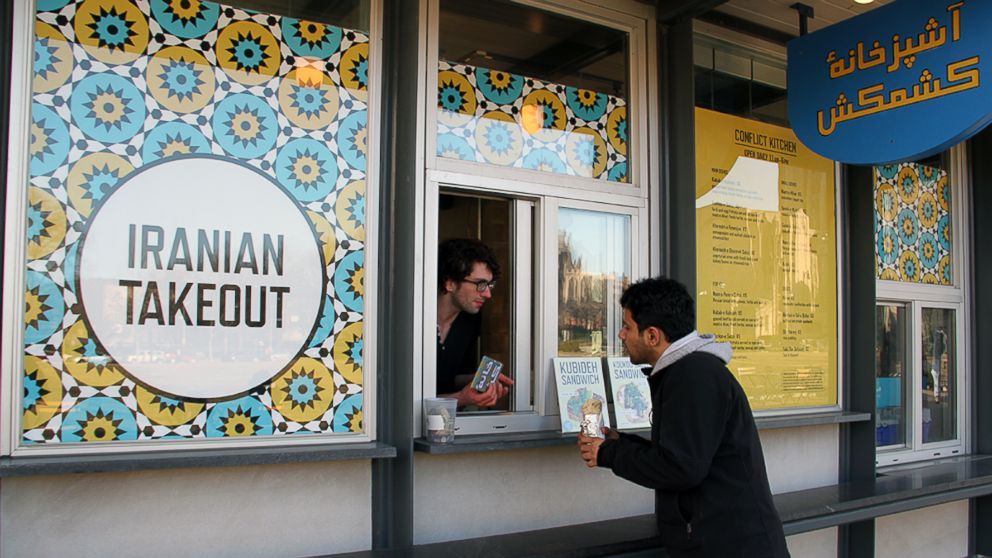Pittsburgh Restaurant Serves the Food of Countries in Conflict With US
No political dialogue is off limits at the popular Conflict Kitchen.

-- There are things you don't talk about at the dinner table, and politics is one of them. But political conversation is encouraged at one restaurant in Pennsylvania. Indeed, it inspires the cuisine.
Welcome to Conflict Kitchen, a takeout spot in Pittsburgh that only serves food from countries in conflict with the United States.
Created by Jon Rubin and Dawn Weleski, Conflict Kitchen features a rotating menu of food native to countries like Cuba, North Korea (Manduguk, or vegetable dumpling soup) and Iran (Khoresht-e Kadoo, or Persian lamb stew with zucchini and tomatoes on steamed rice). The idea began as an interactive art project that has since become a full-fledged business.
"It was an experiment that was based on what many people thought was an incredibly bad business model to sell food to people in the city, from countries that have no cuisine on our local landscape,” Rubin, an associate professor in the School of Art at Carnegie Mellon University, said.
“There's never been an Afghan restaurant or an Iranian restaurant or a Cuban restaurant in [Pittsburgh].”
Rubin, 51, and Weleski have experience in the restaurant industry, but their emphasis with Conflict Kitchen was less about turning tables over and more about food being a medium for political dialogue and cultural exploration.
"In some ways, [it] was a response to what I felt wasn't in this city, which was a lot of cultural and ethnic diversity, and also a sense of being part of an international, global conversation," he added.
Run as a nonprofit, the restaurant project is hosted by a research center at Carnegie Mellon and receives some grant funding, Rubin said.
Menus are researched and tested in advance, and they change every few months, along with the restaurant's entire decor. Conflict Kitchen is now serving Venezuelan fare such as Pabellon criollo (shredded beef) and Chivo al coco con mofongo (slow-cooked coconut goat), and plans to introduce Palestinian food this fall.
The takeout fare is packaged in custom-designed wrappers printed with interviews of locals from various countries and those who have immigrated to the United States.
The restaurant encourages customers' questions and conversations, but its popularity has made it somewhat challenging for lengthy discussions. "Since we've become so popular, people aren't able to take the time to stand at the takeout window and talk with our staff, who have been trained to have these discussions, to basically be good listeners and conversationalists about the politics and culture," Weleski said.
To that end, the restaurant hosts regular roundtable discussions and events. In one example, customers were able to have lunch in real-time with a local in Iran, while an employee wearing a headset served as a live avatar, sitting at the table and relaying the Iranian's responses to customer's questions.
As for whether the answer to world peace lies in breaking bread with strangers, "Conflict Kitchen isn't about solving these problems or creating peace,” Weleski said, “but it's about creating a public space where people feel comfortable enough to have that discussion.”



